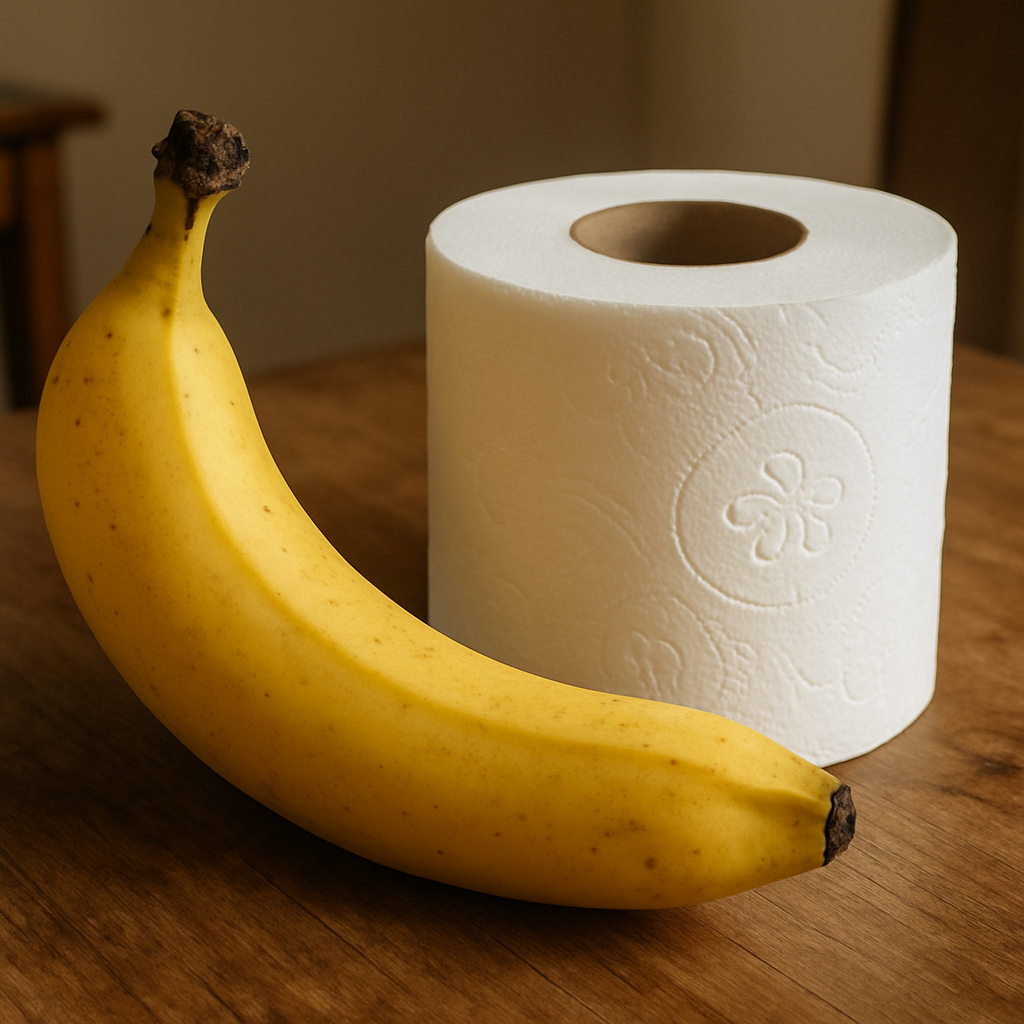Ask Ayurvedic doctor a question and get a consultation online on the problem of your concern in a free or paid mode. More than 2,000 experienced doctors work and wait for your questions on our site and help users to solve their health problems every day.
Is Banana Good for Loose Motion, Diarrhea, or Indigestion?

Bananas — they’re simple, soft, and always easy to eat. But beyond being a convenient snack, have you ever wondered: is banana good for loose motion or even diarrhea and indigestion? The short answer is yes... well, mostly. In many cultures, especially in traditional Indian households, banana is the go-to food when your stomach is feeling off. Whether you’re struggling with loose stools, mild indigestion, or a grumbly belly, this humble fruit might just be the relief you're looking for.
In this article, we’ll explore the science and the ancient wisdom behind banana’s gut-soothing benefits. We'll answer common questions like: does banana help in loose motion, can we eat banana in loose motion, and even is banana good for indigestion. Stick around—this isn't your average nutrition blog post. It's practical, slightly imperfect (just like us), and genuinely helpful.
Loose Motion, Diarrhea, and Indigestion in Ayurveda
Digestive problems aren’t new. In Ayurveda—the ancient Indian system of medicine—issues like loose motion, diarrhea, and indigestion are seen as imbalances in your body’s internal energies (called doshas). And when your Agni (digestive fire) weakens, food doesn’t break down properly. That’s when problems start brewing.
Common Causes of Digestive Imbalance and Symptoms
There’s a bunch of reasons your gut might go haywire. Spicy food, contaminated water, stress (yes, that again), infections, and even overeating can all lead to loose motion and indigestion. Your symptoms could range from watery stools and bloating to stomach cramps and a feeling that your food is just sitting there... not moving. Sound familiar?
Ayurveda groups these issues under disorders of Pitta and Vata doshas—especially when excess heat or wind disturb your digestive system. What you eat when you're experiencing these symptoms can either worsen or improve the situation. That’s where banana for diarrhea and other tummy troubles comes in.

Is Banana Good for Loose Motion and Digestive Relief?
Let’s dive into the big question everyone’s googling at 3 a.m.—is banana good for loose motion? And hey, banana for loose motion seems to be an age-old trick that still works, but why?
Banana for Loose Motion: Cooling and Binding Effects
Bananas are naturally cooling, which helps balance an overheated gut. They’re rich in pectin—a type of soluble fiber that absorbs excess water in the intestines, helping bulk up stool. This makes banana good for diarrhea and loose motion by slowing down bowel movements.
Some people might say, “banana is good for loose motion? Are you sure?” Yep. Not only is it true, but studies have even shown that bananas can help restore lost electrolytes like potassium. That’s crucial because diarrhea depletes them fast.
Does Banana Help in Stopping Loose Motion and Soothing the Gut?
Absolutely. Banana helps in stopping loose motion naturally by acting like a mild binder. It doesn't stop things too abruptly, which is good, because your body still needs to flush out whatever caused the issue. But it does help stabilize things without being harsh on your system.
It also promotes the growth of good bacteria in your gut, which can speed up recovery and make you feel “normal” again. Honestly, sometimes all you want is to go back to feeling normal, right?
Can We Eat Banana in Loose Motion or Indigestion? Ayurvedic Insight
Ayurveda actually recommends ripe banana in cases of loose motion. It’s sweet, slightly astringent, and heavy—all qualities that calm down an overactive gut. So if you're wondering can I eat banana in loose motion, the answer is not just yes, but you probably should—especially if the banana is ripe, yellow, and slightly soft.
When it comes to banana for indigestion, it depends. If you’re feeling bloated and heavy, banana may feel too much. But if it’s just mild discomfort or acid imbalance, the cooling effect might actually help. Still, it’s best eaten alone, not mixed with milk or other foods, especially during stomach upset. Keep it simple.

How to Use Banana for Diarrhea and Indigestion Relief
Now that we’ve answered whether banana is good for loose motion (spoiler: it is), let’s get into the how. Because grabbing just any banana or eating it the wrong way might not do much good—and in some cases, could actually make things worse. Yup, there’s a bit of nuance here.
Best Way to Consume Banana During Digestive Upset
First thing’s first: choose the right banana. If you're dealing with diarrhea or indigestion, opt for ripe, soft bananas—the kind that are yellow with maybe a few brown spots. Avoid unripe (green) bananas unless a doctor or dietitian tells you otherwise. Unripe bananas are harder to digest and can cause bloating or worsen indigestion in some people.
You might be wondering, which banana is good for loose motion? In India, varieties like elaichi banana (small yellow ones) or robusta are often recommended due to their gentle texture and cooling nature. Just don’t go wild and eat 5 at once. One or two per day is usually enough.
Here are some simple, gentle ways to consume banana when your tummy’s being rebellious:
-
Eat it plain – No frills. Just peel and eat. It’s gentle and effective.
-
Mashed banana with a pinch of salt – Salt helps replenish sodium lost during diarrhea.
-
Banana and rice mash – Soft mashed rice with mashed banana can be soothing, especially for children. It’s also easy to digest.
-
Banana with curd (if tolerated) – Curd can help restore gut bacteria, and banana adds fiber. But avoid if you’re lactose-intolerant or curd makes you feel worse.
Avoid mixing banana with milk during digestive episodes. Despite being a classic combo, it can be heavy and ferment in the stomach—ugh, not great when you're already feeling gross.
If you’re asking, can I eat banana in indigestion—the answer’s a cautious yes. For mild indigestion, especially acidity, a ripe banana can help neutralize acid. But if your indigestion comes with gas, heaviness, or burping, banana might not be ideal. In that case, wait till symptoms ease or try a very small amount to see how your body reacts.
One more thing? Don’t force it. Some people genuinely feel worse after eating bananas, especially if they have IBS or a sensitive gut. So always listen to your own body first—even before listening to blog posts like this one 😅.
Conclusion
So, is banana good for loose motion, diarrhea, or indigestion? Yes—with a few caveats. Bananas can help in stopping loose motion naturally thanks to their fiber, binding effect, and potassium content. They’ve earned their spot in the digestive first-aid kit.
Still, not all cases are the same. And while banana for diarrhea works for many, it may not suit every stomach—especially when indigestion is involved. Always opt for ripe bananas, eat them plain or lightly mashed, and avoid heavy combinations that can slow digestion.
In short: banana helps soothe, stabilize, and support your gut... if you treat it right.
FAQs
Which banana is good for loose motion?
When dealing with loose motion or diarrhea, the best banana to eat is a ripe, yellow banana—preferably one that's soft and easy to mash. Varieties like the elaichi banana (small and sweet) or robusta are ideal. These are less starchy, easy to digest, and have the binding qualities that help slow down bowel movements.
Avoid green or underripe bananas during this time, as they contain resistant starch which can be harder to digest and may lead to bloating or even worsen symptoms in sensitive people.
Can we eat bananas in loose motion or diarrhea?
Yes, absolutely! In fact, bananas are one of the few fruits that are actively recommended during loose motion. They’re gentle on the stomach, help replenish lost nutrients like potassium, and contain pectin—a soluble fiber that helps absorb excess water in the intestines. So next time someone asks, “can we eat banana in loose motion?”, you’ll know the answer: yes, and it's a good idea too.
However, eat them plain—don’t mix them with milk, cream, or sugar-heavy things. Just keep it simple while your gut’s healing.
How do bananas help in stopping loose motion naturally?
Banana helps in stopping loose motion naturally through a few different mechanisms:
-
Pectin content: This soluble fiber binds stool and helps normalize bowel movements.
-
Electrolyte support: Bananas are rich in potassium, which helps restore electrolyte balance lost during diarrhea.
-
Soothing properties: Their natural coolness helps calm inflammation in the digestive tract.
-
Promoting good bacteria: Bananas also act like a prebiotic, feeding the good bacteria in your gut.
It’s not magic, but it’s pretty close for something that grows on a tree 🍌
Final Thoughts
We started with a simple question: is banana good for loose motion? And we’ve come a long way—exploring Ayurvedic insights, nutritional benefits, and practical tips for using bananas during digestive distress.
To wrap it all up:
-
Bananas are effective for loose motion, diarrhea, and in some cases, indigestion.
-
Eat them ripe, plain, and in moderation.
-
Avoid mixing with heavy ingredients or consuming unripe bananas during illness.
-
Always listen to your body—if it reacts badly, pause and try something else.
Also worth mentioning (and people often overlook this): if symptoms persist for more than 2-3 days, or if you're seeing blood, severe pain, or dehydration signs—see a doctor. Banana is helpful, but it’s not a cure-all.
If you found this article helpful, why not share it with someone who’s been Googling “is banana good for diarrhea” in a panic? 🫣 We’ve all been there.
Also, check out our other articles on natural remedies, gut health tips, and Ayurveda-backed wellness ideas.

